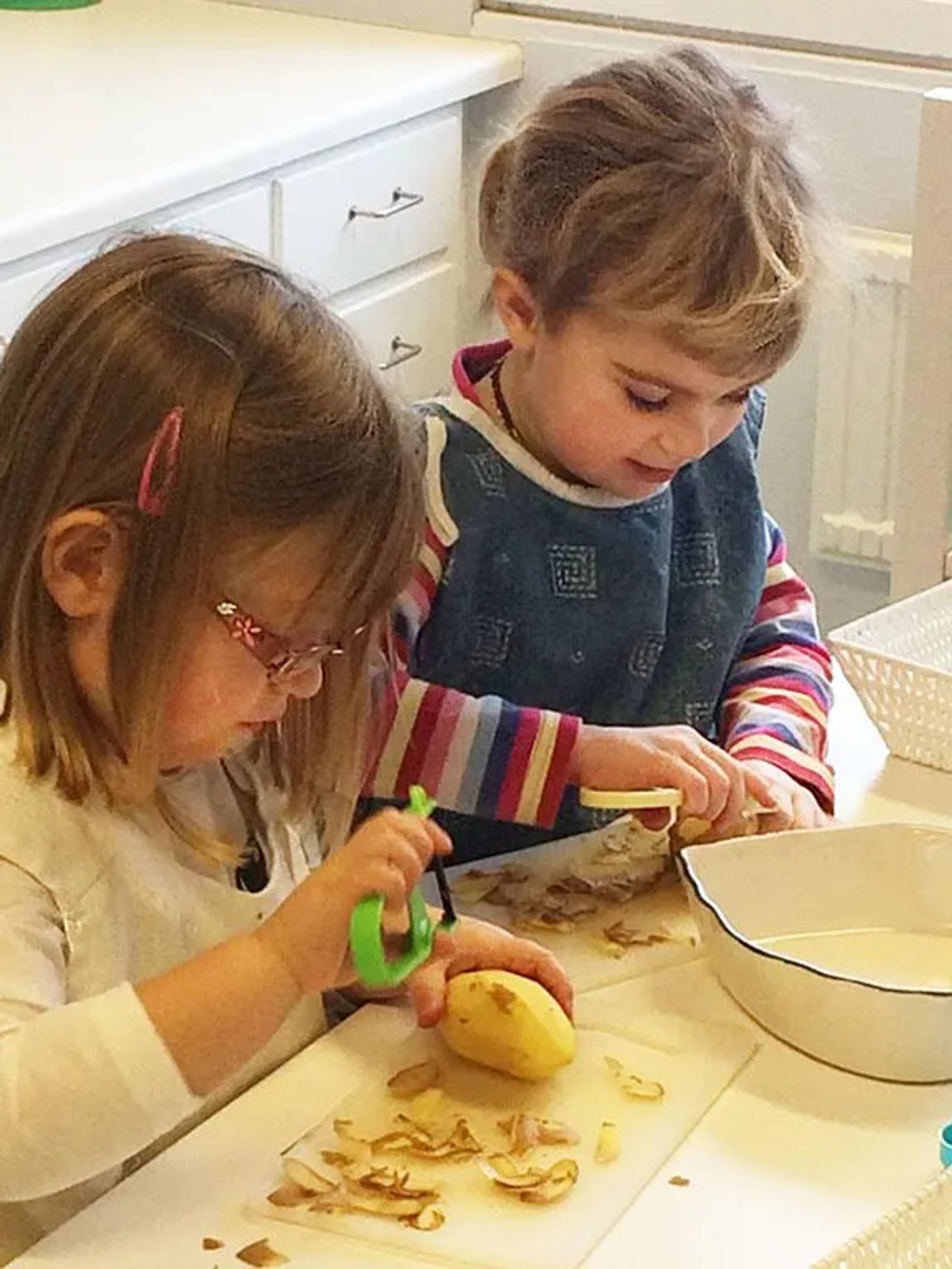Bringing a Bit of the Montessori Method Home
Every now and then, my child reminds me to bring a little bit of the Montessori Method home from school. I’ll never forget the time I invited a new friend to my home for lunch. She had just moved to town and had children the same age as mine. I decided, perhaps a bit hesitantly, to drag out my grandmother’s tea set: a beautiful, fragile collection of fine china.
The moment I placed the tea set onto the table, my three year old son jumped to the table and started “serving” the tea. Alarmed, my first instinct was to protect Grandma’s china from my unruly tot, so I quickly moved to put a stop to his unexpected behavior. Before I could reach him, however, I noticed something: he was moving very carefully and purposefully. He wasn’t spilling or chipping or breaking anything.
In fact, he was so completely focused on his task, that his little hands trembled, just slightly, with excitement. The earnest look on his young face was enough to stop me in my tracks. I stood by and just observed. Where had he learned this seemingly “grown-up” skill and, more importantly, how had he learned to concentrate with such determination?

Later, I found out that his Montessori school had a similar tea set (although probably not fine china) that was available as one of the children’s “Practical Life” lessons. Under the Montessori philosophy, Practical Life lessons are one of the Four Major Avenues for Learning in preschool aged children. By interacting with their environment, children learn invaluable skills such as coordination, independence, concentration, ability to make choices, and a sense of order. We can continue to foster these skills at home by repressing the impulse do things for our kids instead of with them.
 As a parent, you are your child’s primary teacher. By giving your child opportunities to try new tasks and make choices for him/herself, you nurture their inner drive to learn. Additionally, fine motor skills, developed through practical life tasks, will later be needed for writing, mathematics and other more advanced lessons. Here are a few examples of everyday lessons that provide important growth opportunities for our children:
As a parent, you are your child’s primary teacher. By giving your child opportunities to try new tasks and make choices for him/herself, you nurture their inner drive to learn. Additionally, fine motor skills, developed through practical life tasks, will later be needed for writing, mathematics and other more advanced lessons. Here are a few examples of everyday lessons that provide important growth opportunities for our children:

- Dressing/undressing
- Brushing teeth
- Helping to prepare meals
- Setting the table
- Clearing the table/ cleaning up after a meal
- Tidying room
- Helping with laundry
- Vacuuming (my son really loves this one!)
- Caring for pets or plants
Keep in mind that a child that shows interest in a specific task is ready to learn that task. If they are not at all interested, don’t force the issue. I’m not suggesting that you sign up your preschooler to become the new housekeeper! Just wait and watch. Before you know it, your kids will be asking you, “Can I try?”
To find out more about Practical Life Lessons, please follow the link below…




















